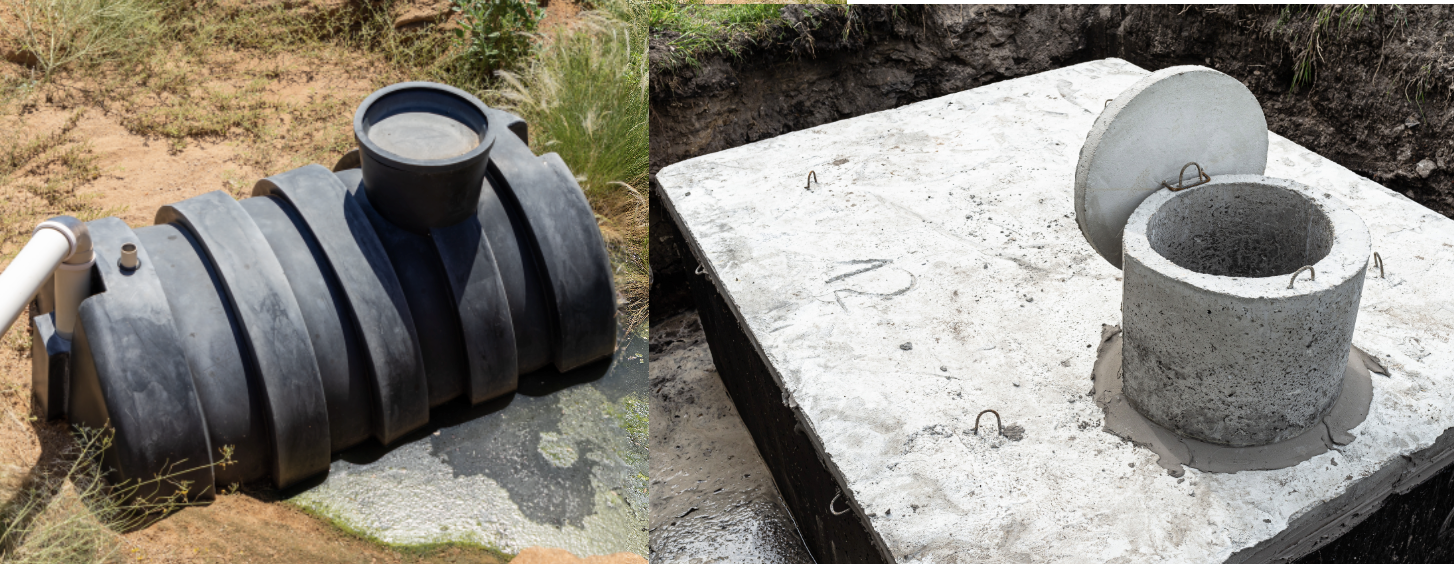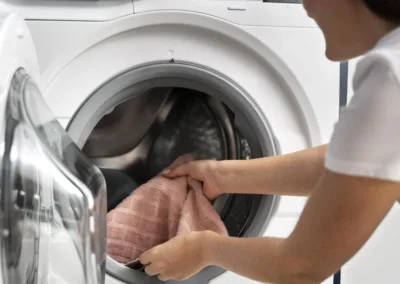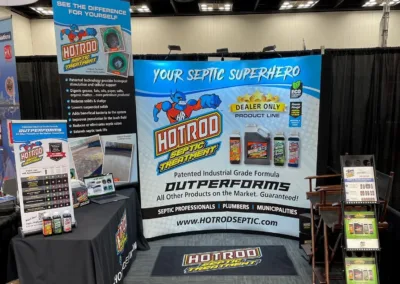
Plastic Septic Tanks: Lightweight and Affordable
Let’s first discuss the pros and cons of a plastic septic tank.
Pros:
- Lightweight: Plastic septic tanks are considerably lighter than concrete ones. This characteristic makes them easier and less expensive to transport and install.
- Affordability: Plastic tanks are often more budget-friendly upfront, making them an attractive option for homeowners looking to save on installation costs.
- Durability: High-quality plastic tanks are designed to resist rust and corrosion, which can be a concern with concrete tanks.
Cons:
- Limited Capacity: Plastic tanks usually come in smaller sizes, which may not be suitable for larger households or properties with higher water usage.
- Susceptibility to Damage: While durable, plastic tanks can be more vulnerable to damage during installation or landscaping activities. Tree roots can more easily penetrate and crack them than they can in concrete tanks.
Concrete Septic Tanks: Durability and Longevity
Now, let’s get into some pros and cons related to concrete septic tanks.
Pros:
- Durability: Concrete septic tanks are renowned for their long-lasting lifespan when correctly installed and maintained.
- Larger Capacities: They are available in larger sizes, making them ideal for households with bigger families and higher water usage or commercial properties.
- Resistance to Floatation: Concrete tanks are less likely to float during periods of high groundwater due to their weight than lighter plastic tanks.
Cons:
- Heaviness and Cost: Concrete tanks are significantly heavier than plastic tanks, resulting in higher transportation and installation costs.
- Susceptibility to Cracking: Over time, concrete tanks may develop cracks or leaks, especially if they aren’t adequately maintained.
Considerations for Your Septic Tank Choice
There are a lot of factors to take into consideration when making this choice, beyond the advantages and disadvantages of each tank itself. Many professionals have their own opinions and preferences on what’s best, but you need to consider factors that are specific to you and your home. These include:
Household Size and Usage: Evaluate your household size and water usage to determine the appropriate tank size. Larger households may lean towards concrete tanks.
Budget: Consider both upfront and long-term maintenance costs. Plastic tanks may be more affordable initially, while concrete tanks may have lower maintenance costs over time.
Installation Conditions: Assess the accessibility of your installation site and the equipment available. Plastic tanks are easier to handle in tight spaces.
Local Regulations: Check local regulations and building codes that might dictate the choice of septic tank material.
Longevity and Future Plans: Consider how long you intend to stay in your current location. If you plan to move soon, a plastic tank may be a cost-effective choice.
Adding HOTROD™ Septic for Optimal Health
After you consider these factors and come to the right conclusion for your home, you’ll want to ensure the functionality and longevity of your septic system. For both plastic and concrete septic tanks, maintaining a healthy ecosystem inside the tank is crucial. Products like HOTROD™ Septic, with its patented technology and 22 strains of biologicals and enzymes, can be a valuable addition to your septic system. HOTROD™ Septic solution digests waste, prevents clogs, and extends the lifespan of your septic system, ensuring it operates efficiently for many years to come. It’s a sustainable, environmentally friendly solution that complements your choice of tank material, making it an ideal partner for your septic system’s health.
At the end of the day, choosing between plastic and concrete septic tanks requires careful consideration of your specific needs, budget, and property conditions. Both materials have their advantages and drawbacks, but with the right choice and proper maintenance, your septic system can provide reliable wastewater management for years to come. Enhance the health and longevity of your septic system by incorporating products like HOTROD™ Septic, which can further optimize its performance and prevent common issues.


